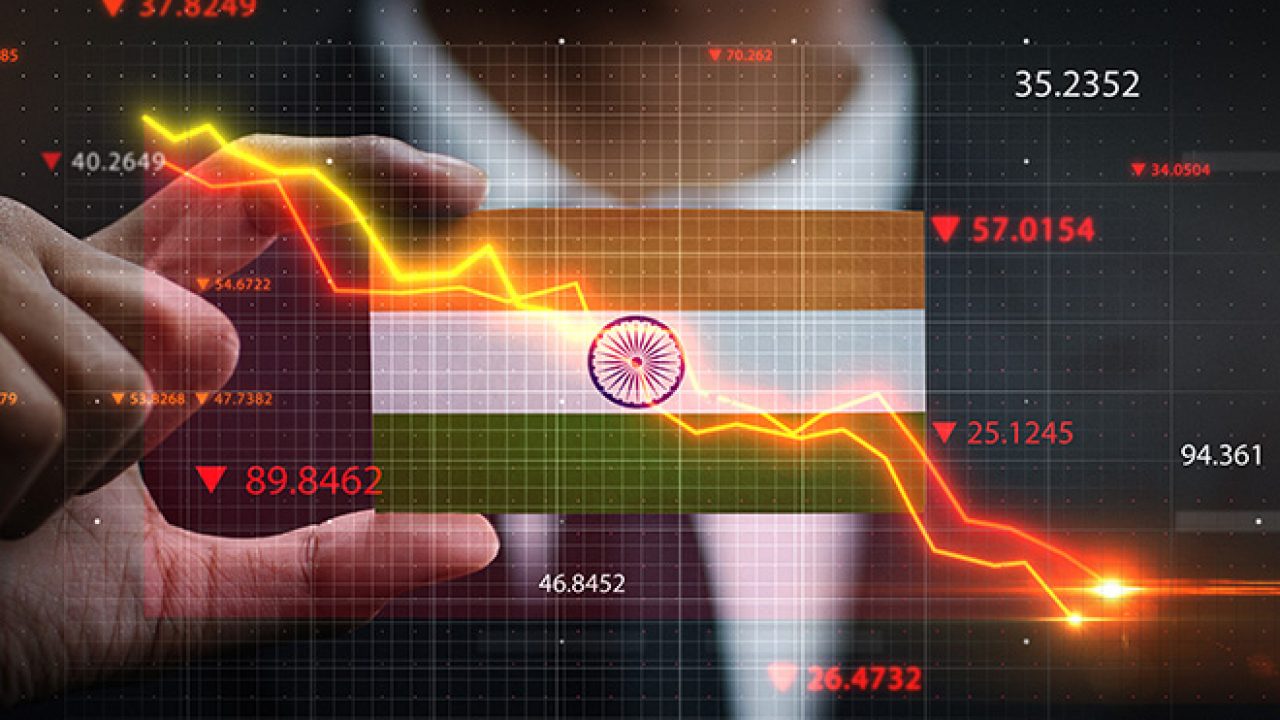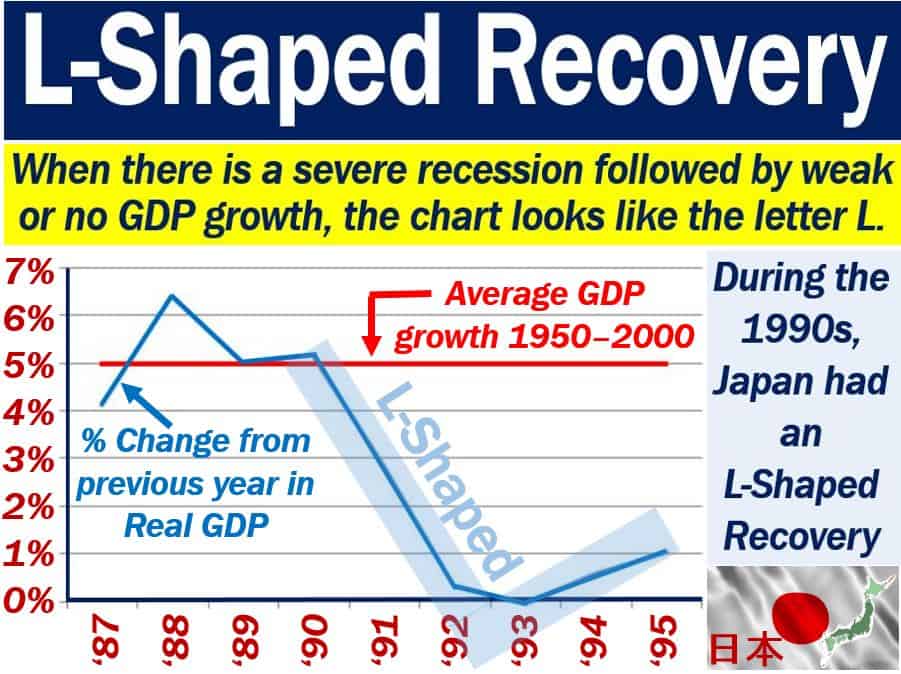Top 5 Sectors That Will Help Indian Economy From Drowning This Economic Recession

Top 5 Sectors That Will Help Indian Economy From Drowning This Economic Recession.
What is a recession?
A recession is a time of economic decline, which is temporary in which trade and industrial activity are reduced, as indicated by a drop in GDP in two consecutive quarters.
Despite being unpleasant, they are regarded as a typical aspect of the business cycle.
Every recession begins with either a brief or extended period of economic decline. However, how they end varies greatly, sometimes recovering quickly, sometimes going into a second recession, sometimes taking years.

Naming recessions
Economists refer to the months or years following the bottom of a recession as “the recovery period” by economists. When metrics such as GDP or employment rates are graphed, they name recoveries based on their resemblance to letters of the alphabet, such as:
- V-shaped recessions. V-shaped recessions start out abruptly and recover almost as quickly. V-shaped recessions are typically thought of as the best-case scenario by economists. (Consider the post-dot-com bubble recession of 2001.)
- U-shaped recessions. These recessions experience a slower decline and recovery while spending more time at their bottom. The recession from 1971 to 1978 is a good example.
- W-shaped recessions. A W-shaped recession is required for two V- or U-shaped recessions to follow one another. The economy contracts bounce back (often quickly) and then decline once more. The early 1980s recessions can be categorized as W-shaped recessions.
- K-shaped recessions. A recent term used to define the post-pandemic recovery is the “K-shaped recession.” When one area of the economy recovers while another sinks or recovers more slowly, the economy experiences a K-shaped recession, which appears as a “K” on a graph.
Let’s now look at the recession known as the L-shaped recession.
What is an L-shaped recession in the Indian Economy?
A type of recession known as an L-shaped recession, or L-shaped recovery, is characterized by a sharp decline followed by a gradual recovery. These recessions, which look like an “L” on a graph, are characterized by persistently high unemployment and slow growth.
L-shaped recessions may also be referred to as economic depressions due to their length and severity. Even though the GDP eventually recovers after hitting its bottom, it may take years or even a decade.
Due to their abrupt onset and enduring effects, L-shaped recoveries are typically regarded as the most harmful type of recession.
The impacts of L-shaped recessions
The economy may find it difficult to return to its pre-recession levels of employment growth during these times.
Businesses frequently have to shut down or fire employees, which prolongs recovery time by putting customers out of work (and money).
As a result, businesses are unable to grow to the point where they can begin hiring once more, which prevents the economy from adjusting.
Governments frequently attempt to intervene in L-shaped recessions to lessen the blow and jumpstart growth due to their devastating effects.
Industries that do well in a recession
Recessions are frequently devastating for investors, L-shaped or not. Businesses may experience decreased profits and increased cost-cutting when less money flows through the economy, which lowers stock prices and dividends. Stocks that are cyclical and discretionary (like those in the hospitality sector) could be hit particularly hard.
However, some sectors of the economy perform well—or even grow—during recessions. These are frequently the “inelastic” sectors or those where consumer demand is unaffected by economic conditions.
Historically, many defensive stocks, like consumer staples, healthcare, and utilities, fall into this category. There are many sectors that can help in bringing up the economy of India from drowning this economic recession.
The following are industries that perform well during an economic recession if you’re looking for places to park your money during challenging times.

Food and groceries
People always need food, personal care items, and some household goods, regardless of the economic situation. (Consider soap and toothpaste.) As a result, businesses that produce or market these goods are generally able to weather economic downturns.
Consumer staple stocks that may perform well during a recession include itc, jubilant food works, Varun beverages, tata coffee, united spirits, ruche soya industries, etc.
DIY and repairs
When money is tight, consumers may save money by performing their own home, car, and garden repairs, renovations, and maintenance. That may be why companies like hdfc AMC, a b capital, icici direct, mofl, etc outperformed in the pandemic.
Discount and cost-conscious retailers
Sure, during a recession, people need food and paint, but that doesn’t mean they have to pay full price. Consumers may turn to less expensive alternatives like store-brand goods or discount retailers for their necessities when it comes time to tighten that budget.
Discounts that may (and have) performed well during a recession include big names like Avenue Supermarts Ltd, Trent Ltd, Aditya Birla Fashion & Retail Ltd, etc.
Freight and logistics
The purpose of moving goods from Point A to Point B applies whether or not there is a recession. Freight lines (and businesses that produce goods related to freight, like packaging or gas) may perform well during recessions, despite the fact that personal and vacation travel frequently declines. Such as Container Corporation of India Ltd, Blue Dart Express, TCI Express Ltd, etc.
Healthcare
Another essential service that most people cannot do without is healthcare. The healthcare industry as a whole is relatively new. Inelastic, though some businesses (such as startups and biopharmaceutical companies) are less resilient during recessions.
Additionally, ancillary products like bandages and peroxide are still in demand, in addition to hospitals, insurance providers, and pharmaceutical firms.
Examples that tend to shine during recessions are Apollo Hospital, Dr. Lal PathLab, Thyrocare Techn, Max Healthcare, etc.
Utilities and energy
Finally, utilities and energy include water, electricity, waste collection, oil and gas, and (arguably) the internet. These and related businesses typically have relatively stable profits regardless of the state of the economy. As a result, companies like Reliance, Adani green, Gail, ntpc, tata power, ongc, and others make excellent investments for increasing returns or reducing losses during a recession.

Don’t go pear-shaped for the L-shaped recession
It is impossible to predict how the recovery will look or which businesses will fare the best during a recession. The fact that the industry may perform well during a recession but experience a decline in profits during the recovery or post-recession period should also be noted.
edited and proofread by nikita sharma



